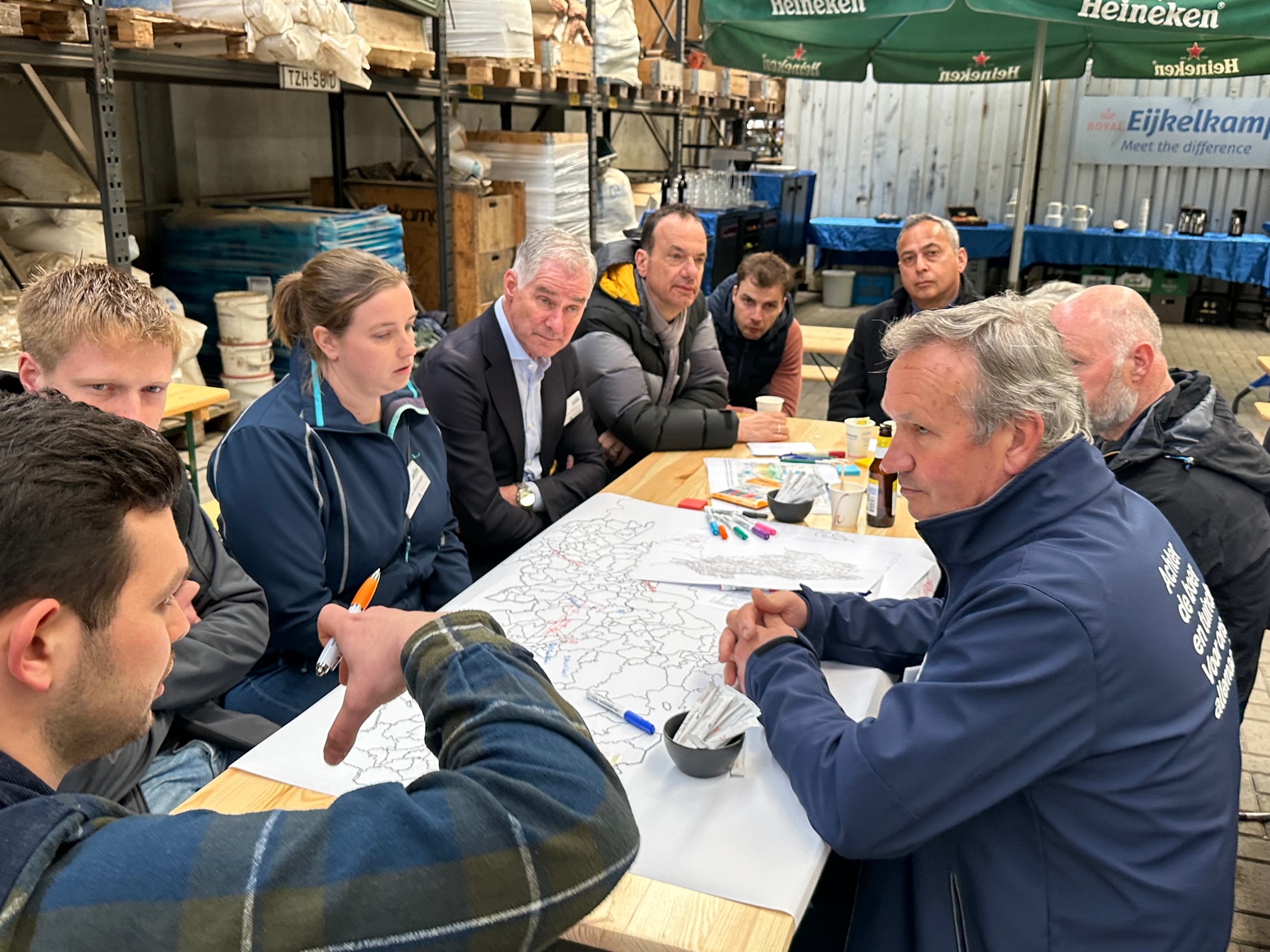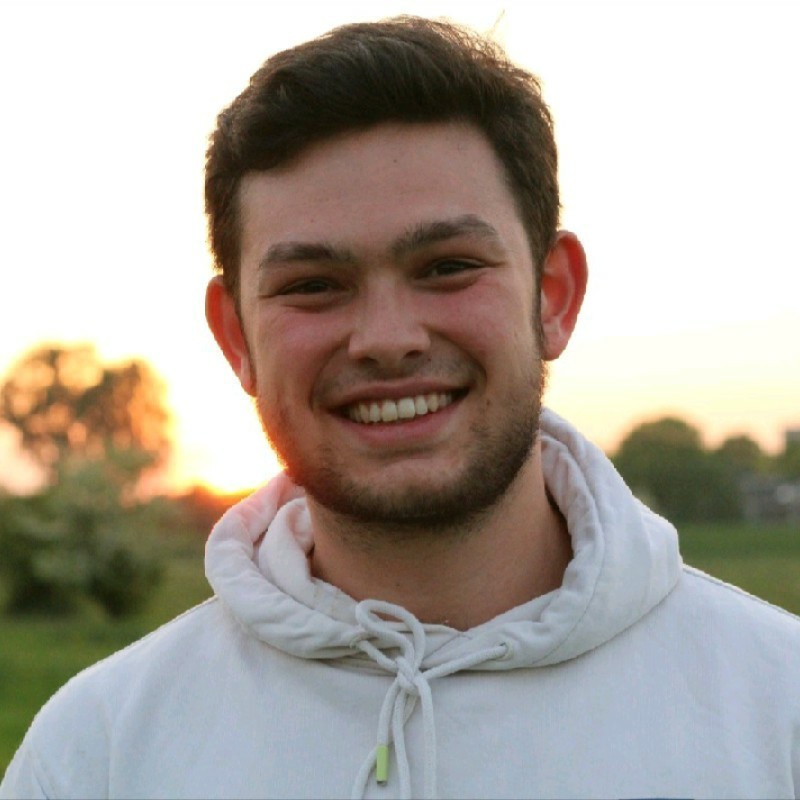Dairy Farming – Achterhoek (The Netherlands) - The Workshop blogpost

On the 25th of April 2023 the first PREPSOIL workshop on regional soil needs in dairy farming took place on the InnoFields of Royal Eijkelkamp in Giesbeek. A diverse group of stakeholders (e.g. policy makers, local farmers, scientists) from the region Arnhem-Nijmegen and the Achterhoek attended to brainstorm about solutions to tackle local environmental problems. Specifically, the workshop focused on identifying changes in land use, and their current and future effect on soil health and management. Divided amongst three groups the stakeholders were asked to discuss the changes in land use, and how this has affected soil health. In the end the stakeholders were asked to develop an ideal and feared scenario for the future regional landscape.
Historically, the region was characterized by many, small-scale farmers who had mixed farming systems, incorporating both several crops as well as different species of livestock. The landscape was dominated by hedges and thickets, dividing the property of different farmers. Mainly due to land consolidation the acreage increased and farmers specialized in single crops (e.g. potatoes, maize) or focused on (dairy) cattle. This led to the disappearance of hedges and thickets, and consequently, to a surplus of nutrients (i.e. nitrogen, phosphor, potassium) in the natural system. Initially, this excess of nutrients resulted in a significant decrease in water quality, but in recent years, this has been partially reversed by stricter national regulations. In addition, due to the intensification of agriculture, and investments in housing and infrastructure, the region has become more wealthy. The intensification of agriculture has also resulted in increasingly heavier machinery that is used, which sometimes results in compaction in deeper layers of sandy soils, as well as soil sealing in clay-dominated soils.
Currently, the region suffers more regularly from the effects of climate change. In particular, weather extremes (e.g. longer drought spells in spring/summer, and heavy rainfall in autumn/winter) are causing more problems on the predominant sandy soils. By incorporating a flexible way of managing groundwater levels the water board is trying to adapt to these extremes. Due to increasing droughts the nitrogen surplus increases even more, which has detrimental effects on the natural system. Unfortunately, the emphasis frequently remains exclusively on macronutrients, resulting in a mismatch between farmers' requirements regarding groundwater levels and the water board's actions. Additionally, smaller villages in the Achterhoek experience an outflow of the younger population, whereas the region surrounding the cities of Arnhem and Nijmegen is still expanding in terms of inhabitants and housing.
Lastly, there was not a consensus on the ideal nor the feared future situation. For the feared situation a couple of statements were mentioned often, such as the continuation of unsustainable practices in agriculture, more abandonment of rural villages, an intensification of industry, and no (or too late) action to combat the effects of increased droughts. In terms of the ideal situation there was a lot of discussion and many scenarios were considered. The session concluded with the notion that at least there should be a focus on integrated planning and collaboration across sectors, in order to create a better balance between sufficient housing, recreation, nature development, sustainable agriculture, and the transition to green energy. Afterwards, the participants enjoyed a barbeque organized by a local catering service, and went home with products from the biological farm ‘Bodemliefde’.
